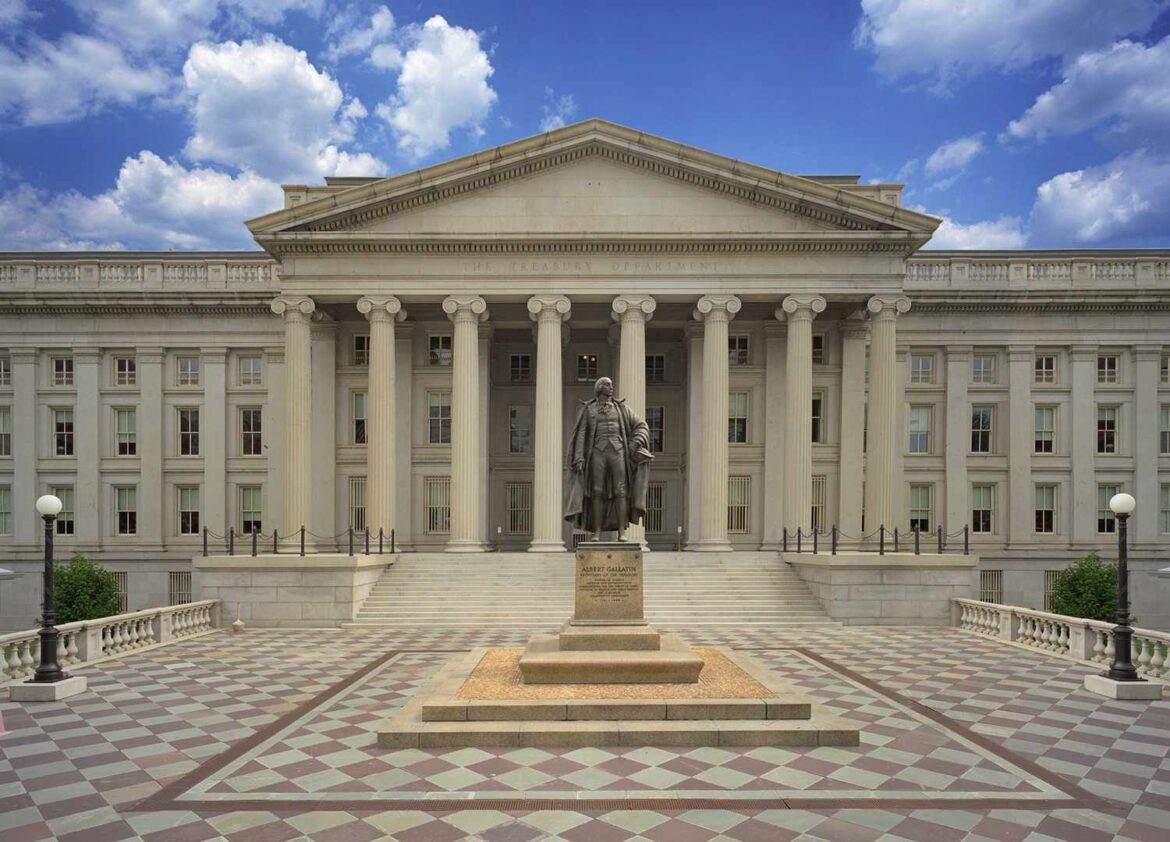The Treasury Department has issued an order ramping up surveillance of financial transactions worth as little as $200 that are processed by businesses in communities along the U.S. southwest border, prompting hand wringing among privacy advocates—including within the cryptocurrency industry. Questions have abounded over whether the directive could be broadly applied beyond cash to crypto transactions as well.
But experts told Decrypt digital asset owners shouldn’t be alarmed. Although the order raises concerns over Americans’ financial privacy rights, it doesn’t apply to people sending and receiving digital assets through platforms such as Coinbase. “There are crypto firms that are licensed and treated as money services businesses,” Coin Center Communications Director Neeraj Agrawal told Decrypt. However, “the order starts with cash, [so] it looks like this [only] targets Western Union-type businesses.”
The temporary order issued last Friday by FinCEN calls for money services businesses in 30 zip codes across California and Texas to report cash transactions over $200, down from the standard $10,000 reporting threshold. Such reporting would entail the name, address, and social security number of the individual initiating the transaction; the amount and type of money being exchanged; and the recipient and purpose of the transaction.
The directive, which will affect more than one million people, aims to combat the “significant risk to the U.S. financial system of the cartels, drug traffickers, and other criminal actors along the Southwest border,” Secretary of the Treasury Scott Bessent said in a March 11 statement.
Money laundering through money orders, wire transfers, and other services offered by Western Union-style businesses serves as a crucial financial lifeline for drug cartels, enabling organized criminals to continue operating, and profiting from, illegal activities that often promote violence and corruption in communities along the U.S.-Mexico border. But immigrants and unbanked individuals also rely on those services, using them to send remittances, pay household bills, and settle debts.
While monitoring transactions processed by money services businesses in some border towns might help thwart drug cartel’s activities, any potential upside of the order will come at the expense of “pretty severe intrusions” into normal people’s lives, Nick Anthony, a policy analyst at Libertarian think tank Cato Institute told Decrypt.
“This is going to affect folks on the lower end of the income spectrum who frequently use these kinds of alternative financial services,” Anthony said. “People who thought they had a sense of financial privacy are going to quickly find out that the government can actually conduct sweeping surveillance at a moment’s notice.”
And although crypto firms don’t have to comply with the order, the new rules should alarm digital asset holders and anyone else who advocates for financial autonomy and the right to conduct one’s personal business away from the watchful eye of the federal government, Anthony said. “This is going to be a pretty harsh wake up for a lot of people that the Fourth Amendment does not work the way many think,” he said.
Anthony added that the U.S. Treasury’s temporary order, which could later be extended, effectively encourages businesses to also report transactions that fall below the new $200 threshold. Money services businesses are required by law to flag anything that looks like structuring, or the act of breaking up large financial transactions into several smaller transactions to avoid federal reporting requirements.
So, if a business suspects that a client is sending $185 to avoid the $200 reporting threshold, it must file a report with the U.S. Treasury to flag the transaction and the individual who attempted it, Anthony explained. “That opens up a whole separate problem where the $200 threshold really effectively becomes a $0 threshold,” he said. Those stringent surveillance rules, according to Anthony, could drive clients of Western Union and MoneyGram to crypto.
“This announcement will push people to look into alternatives, whether that be cryptocurrency or something else,” Anthony said. But, “it should be a decision that people are making solely on what fits them best, solely what fits their needs, not because the other options are being effectively crushed.”
- U.S. Policy Proposal Calls on Treasury to Issue $2T in Bitcoin-Enhanced Bonds to Offset Debt, Fund Strategic Reserve
- FDIC Releases Documents Involving Crypto-Related Activities
- FBI Seizes Polymarket CEO’s Devices to Allegedly Probe Potential Market Manipulation in Elections Bets
- Chris Larsen Confirms $10 Million in XRP Donation to Kamala’s Campaign
- Alabama State Auditor Calls to Establish Bitcoin Reserve
- SEC Scraps SAB 121 Rule, Easing Crypto Custody Accounting For Banks






